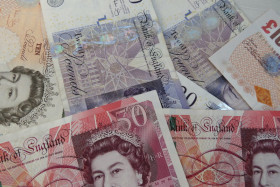The Great Britain pound was rallying on Monday on hopes that the UK and EU leaders will be able to negotiate a new Brexit deal, resolving the Irish backstop issue. The sterling continued to move higher at the start of the Tuesday’s session after changes to the deal were indeed made.
David Lidington, Minister for the Cabinet Office, announced “legally bounding” changes to the Brexit deal that will prevent the European Union from keeping the Irish backstop indefinitely. He said:
We will be laying two new documents in the House: A joint, legally binding instrument on the withdrawal agreement and protocol on Northern Ireland; and a joint statement to supplement the political declaration.
The first provides confirmation that the EU cannot try to trap the UK in the backstop indefinitely and that doing so would be an explicit breach of the legally-binding commitments that both sides have agreed.
If â contrary to all expectations â the EU were to act with that intention, the UK could use this acceptance of what could constitute an explicit breach as the basis for a formal dispute, through independent arbitration, that such a breach had occurred â ultimately suspending the protocol if the EU continued to breach its obligations.
On top of this, the joint instrument also reflect the United Kingdom’s and European Union’s commitment to work to replace the backstop with alternative arrangements by December 2020, setting out explicitly that these arrangements do not need to replicate the provisions of the backstop in any respect.
While the change somewhat increased hope that UK Prime Minister Theresa May will be able to convince the Parliament to accept her Brexit deal at the voting on Thursday, a healthy dose of skepticism remains. Labour leader Jeremy Corbyn strongly criticized the new agreement:
This eveningâs agreement with the European Commission does not contain anything approaching the changes Theresa May promised Parliament, and whipped her MPs to vote for.
Since her Brexit deal was so overwhelmingly rejected, the prime minister has recklessly run down the clock, failed to effectively negotiate with the EU and refused to find common ground for a deal Parliament could support.
Thatâs why MPs must reject this deal tomorrow.
GBP/USD rallied from the Tuesday’s open of 1.3188 to 1.3237 as of 23:44 GMT today, though retreated from the high of 1.3288. EUR/GBP declined from 0.8527 to 0.8502, and its session low of 0.8475 was the lowest since May 2017. GBP/CHF soared from 1.3322 to 1.3372, touching the high of 1.3421 earlier — the highest level since May 2018.
If you have any questions, comments or opinions regarding the Great Britain Pound,
feel free to post them using the commentary form below.
